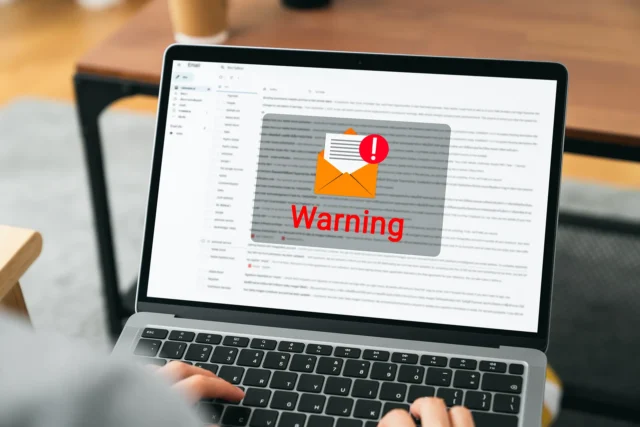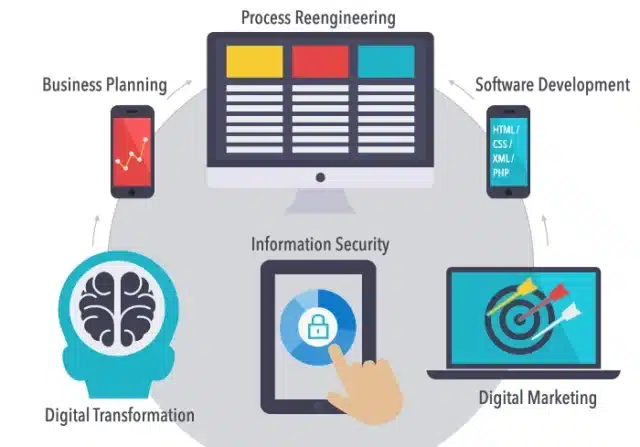Category: Services

Maintenance vs. Support – The Down & Dirty
Some words that you may often hear in terms of IT services are “Maintenance” and “Support”. If you’re not in the business of delivering IT services, these words may be synonymous to you. In fact, they are not at all. When dealing with IT Service providers, it will benefit you to remove any ambiguity about “Maintenance” and “Support” in understanding what is being provided.
Simple Definitions
So let’s define these things in their simplest terms and provide some real world examples.
What is the Context?
The context in IT terms are applications, services, hosts, etc. Any “thing” that contributes to the functionality you expect requires some level of Maintenance and Support. Combined, Maintenance and Support determine the overall Availability, Security, and Usability of the thing.
Both Maintenance and Support combined determine the overall Availability, Security, and Usability of the thing.
What is Maintenance?
Maintenance is the ongoing care and feeding of the thing. It is:
- the proactive measures to ensure the thing continues to do what it is meant to do,
- regularly performed on a schedule,
- determines the ultimate availability of the thing,
- critical to ensure the Availability and Security of the thing.
What is Support?
Support is the activity of restoring or enhancing the functionality of a thing. It is:
- the reactive measures to return the thing to a desired state,
- performed as a result of an event,
- critical to ensure the ongoing Usability of the thing.
What You Should Know
So what does this mean to you? If you subscribe to any IT Services, both Maintenance and Support will determine the overall value of the service to you. Here are the takeaways:
- Maintenance applies to the systems/services, code, and content of the thing. Like your house or car, without adequate Maintenance, the thing will ultimately fail.
- Hosting does NOT typically include all the maintenance required. It only provides for the Maintenance of the systems(network and hosts) required to deliver the code and content, not maintenance of the code OR content itself.
- Lack of adequate Maintenance is the primary reason that the thing:
- does not perform as desired through failed code resulting in lack of Availability and Security exposure (hacks),
- and drives up reactive Support events needed to restore the thing to its desired state.
- Support is the people and process by which a thing is restored when needed (when some event happens).
- Lack of or inadequate Support:
- degrades the usability of the thing,
- delays the restoration of the thing when an event occurs,
- erodes customer confidence in the thing.
Summary
In dealing with any IT Service Provider, it is important you not only understand the Maintenance and Support being provided, but make sure you are getting the levels of each you need to have peace of mind in knowing your “thing” will perform as needed for the duration. While the levels of maintenance and support vary depending on the thing being provided, you should never assume you need none of either unless you are a gambler.
... Make sure you are getting the levels of each you need to have peace of mind in knowing your “thing” will perform as needed for the duration.
At CMHWorks, we provide many levels of Maintenance and Support, and can tailor one to meet the needs of your thing. For more information see:

The Freemail Pitfalls
In January’s newsletter, I covered the Four Pillars for any Business, and why selecting the right tools as the foundation of your business is critical to your success. In this installment of Mike’s Musings, I’d like to dive a little deeper into one of the common traps and why you should avoid it for your business - that is the use of Freemail.
When discussing the use of Freemail in business, we often hear comments like, “It’s free and it works, so why pay for something else?” Well, here are a few very good reasons to spend $6-7 a month.
Anything offered for free always has a catch
In any product or service offered, if you are not purchasing said product or service , you are the product.
All services have a cost. Companies offering the service must cover that cost. If you are not paying for the service, the company providing the service is leveraging you and the data you provide (along with all its other subscribers) to recoup the cost and make a tidy profit. How do they do it? The two most common ways companies turn your free use into cash through either advertising revenue, direct sales of your contact information, or both.

For personal use, okay. For business, notsomuch.
So you use Gmail, Yahoo, or Hotmail personally. You are familiar with the services. Why not use them for your business right? Wrong. Here’s why:
- While you may be fine with personal use data being farmed, you should assume you have next to zero data privacy. Communications and data about your business should never be exposed for the whole world to see. Doing so leaves your business vulnerable so hackers targeting your company with Social Engineering exploits like Spoofing, Phishing, Smishing and Vishing, with no ability to secure your data.
- Because you can’t expect any reasonable data privacy, you are potentially giving your competitors vital information about how to compete with you. Information you send to vendors and customers is valuable to your competitors. If you’re sending and receiving sensitive information with Freemail , you should expect it to be reasonably easy to get.
- Because you have no semblance of privacy, you are susceptible to the all-dreaded spam, spam, spam. I’m not sure if I know anyone that like’s spam. And because you are using a Freemail domain that you don’t own, there is nothing you can do to prevent it.
- You are missing out on the ability to brand your communications. If you have a website, you likely have a domain registered for your business. You registered the domain for branding and marketing purposes. You cannot use your domain with Freemail services. So, every email you send is a missed opportunity to reinforce your brand.
The Real Costs of Business Class Email
Business-class Email costs about $6-7 per month per mailbox. Sure, you can add on other features and services to suit your needs, but value of Business-class email alone is obvious. At CMHWorks, we offer not only the Email services at the same price you can buy it directly from the providers, but also the setup, support and maintenance because we believe it is fundamental for any business.

Essential Tools for Today’s Business
One of the most common challenges facing any business today is differentiating itself in the digital world. It is virtually impossible to compete today without a visible digital presence. This challenge applies to all businesses from start-ups to multi-national conglomerates alike. But unlike large companies that have the technical capacity to implement tools to market, support and secure their operations, smaller companies typically do not. This is especially true for small businesses who often do not have the resources or skills to build a solid technical foundation. The good news is that for most businesses large and small the foundation is basically the same. And regardless of your company's size, there are essential tools to build and grow your business today on a solid foundation.

Four Pillars for Any Business
In addition to any specific tools used to deliver services, there are four (4) essential or foundational tools for all digital businesses today. These tools are equally important and should work in concert to serve as the foundation of your business:- Website AND Social Media ‐ the website and social media make up the "visible" marketing aspect of a business's digital presence. While often handled as separate tools, they should be working together to continually increase your visibility.
- Collaboration ‐ typically starting with Email, Collaboration tools should also include calendaring/scheduling, file sharing, real-time chat, and audio/video conferencing that allow your team to work together and with your customers.
- Customer Relationship Management (CRM) ‐ CRMs primary functions are to proivde a framework to manage Marketing, Sales and Customer Service activities enabling the management of potential business "cradle to grave" from leads to sales to support of your products and services.
- Cybersecurity ‐ including User Training, Endpoint Protection, Monitoring and Mitigation, Cybersecurity tools provide digital security for all other tools and protects your company's digital assests from denial of service attacks, hacking and theft.
While there are likely other tools your company will need as it grows, the tools above will serve as the ecosystem to support them. And the sooner you build that foundation, the sooner you can get to the business of growing your business.
Avoid the Common Pitfalls
There are several pitfalls to avoid when selecting the tools that are the foundation of you businesses digital presence.- Don't Use "Freemail". ‐ Anything offered for free usually has a catch. Freemail services such as GMail, Outlook.com, Yahoo and the like the tradeoff is privacy which is a big payout for little savings. And you@gmail.com does not enhance your digital presence.
- If you don't know, ask a professional. ‐ The old addage "Do what you do well and pay experts to do the rest&qout; especially applies to selecting your tools and making them work together. Get advice from people who know. Not all IT People have the same skills. Your nephew who is "really good on Social Media" maybe inexpensive, but is probably not qualified to build the foundation of your business.
- Don't view the tools as individual solutions. ‐ All of your tools should work together to serve as a solid foundation. Make sure the tools you chose integrate, and integrate everthing you can.
Summary
Selecting the right tools is critical for your business, and you should take care in the choices of what tools to use so you house isn't built on sand. All tools are not created equal.
Stay tuned for future installments where we will be discussing each of the Essential Tools in more depth.

Project Management As a Service – Part 2
What types of projects benefit most from Project Management Service?
The list of projects undertaken by an SMB that can benefit from dedicated, professional Project Management services is growing for a number of reasons. They include digital transformations pushing companies into technical areas for which they lack in-house skills. Another is the demand for leaner business operations, greater accountability and cost efficiency. Acquiring Project Management services is also a good idea when the delivery and goals of a project have a very specific or tight window of opportunity.
Read the entire Article on Medium here.